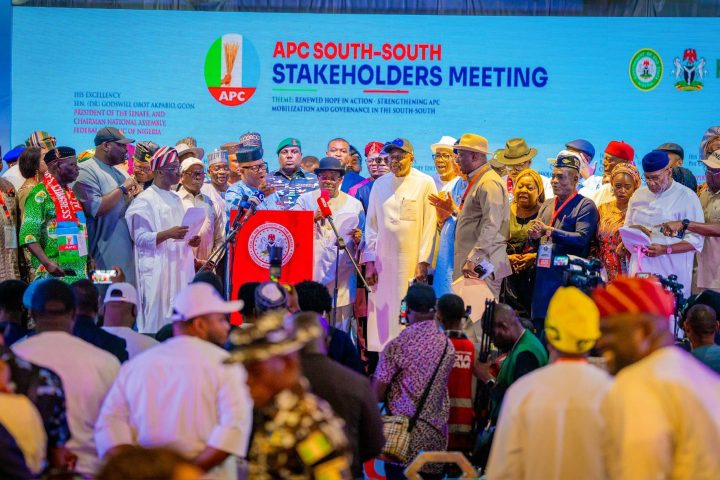By Chido Nwakanma
Join our WhatsApp Channel
Both sides of the dispute over the tilt of the governorship of Abia State circa 2023-2027 may find in former Governor Orji Uzor Kalu an unlikely resource for its resolution. Kalu implemented a formula that changed the state’s power structure into a quadrant. He did so unwittingly in 2007 when he ensured that Chief (now Senator) Theodore Orji succeeded him in office.
Orji Kalu came from the Old Umuahia zone in the old configuration. The governor came from Abia North Senatorial Zone in the new geopolitics. Rather than follow the formula of Abia’s fathers’ drawn ab initio ahead of the creation of the state, he chose a new procedure. He picked on Chief Theodore Orji, his then Chief of Staff, from Umuahia or the new Abia Central senatorial zone. It is interestingly coincidental that both men sit in the Senate currently representing Abia North and Abia Central.
Abia Central, however, is a mini-Abia State in its configuration with six local governments. There is an equal representation of three local governments from Aba and Umuahia. The local governments are Ikwuano, Umuahia North, Umuahia South from the Umuahia axis, Isiala Ngwa North, Isiala Ngwa South, and Osisioma of the Ngwa axis.
Representation in the Abia Central senate seat swings between the Ngwa and Umuahia in the legislature. Senator Bob Nwanunu from Ngwa land took the first shot in 1999 and served for one term. Senator Chris Adighije from Umuahia took over and did one tour as well.
Nkechi Nwaogu from Osisioma became the Senator in 2007. She served for two terms based on a consensus of the political leaders following the exit of former Governor Orji Uzor Kalu from the PDP to form the Progressive People’s Alliance.
The senatorial seat swung back to Umuahia in 2015, with former Governor Theodore Orji from Ibeku Umuahia becoming a senator.
Significantly, in anointing Theodore Orji for the governor’s seat when he did, Orji Uzor Kalu carved the political structure of Abia State into a quadrant rather than the triangle upon which some base their succession arguments.
Abia Central has honoured the Abia Charter of Equity 1981 in political representation in the legislature. It would need to continue. It has respected the quadrant that is now the structure of Abia politics.
The Ngwa of Abia Central base their claims to the governorship rotation on this quadrant and the Abia Charter of Equity 1981. One half of the senatorial zone took its turn for eight years with Theodore Orji as Governor. It then went to Abia South with Governor Okezie Victor Ikpeazu.
It should return to Abia Central with the remaining part of the quadrant, the three Ngwa local governments. It is equitable and in line with what the players have done in the legislature since 1999.
The other issue is the length of stay in the Governor’s Office. It currently stands at 18 years for Umuahia Division or Abia North and seven years for Aba Division or Abia South senatorial zone. When Ikpeazu leaves office in May 2023, Aba Division would have done only eight years versus eighteen years. Fairness and equity dictate that the Ngwa half of Abia Central should do eight years to try to close the gap.
















Follow Us